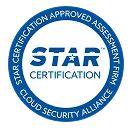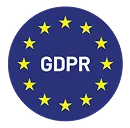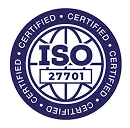In this edition of the Launch Station, we spoke to Mike Sasaki and Rachel Jugai, who are currently colleagues in the Customer Success division at Mitek systems. Mike has over 20 years of overall experience across tech and SaaS companies with over 12 years of experience heading customer success departments including his current role. Rachel has over eight years of experience as a CSM and is currently a part of Mike’s team.
In this episode, you’ll hear them answer questions on:
- What they have learned from escalations through the course of their careers
- Escalating customer issues at their end
- Differences in handling escalations for larger versus smaller clients
- Playing good cop — bad cop during escalations
- Communication, processes, playbooks
...and more.
Summary and Takeaways
We began this freewheeling session by asking Rachel and Mike the strengths they saw in each other as members of the same team. We learned that Mike, as a CS Lead, has the ability to enter any meeting, and within the first few minutes, ask the right questions — questions that establish clarity on the purpose of the meeting and get everyone on the same page for the rest of it. As a CSM, Mike observed that Rachel’s strength was simply the attitude, preparation, and effort combo that she put into every single customer interaction.
Here are ten of our key takeaways for CSMs from this session.
1. Escalations are part of the job
- Whether it is SaaS or IT, escalations are unavoidable; as a CSM, accepting this is part of doing your job better.
- Focus on the facts and having a good plan in place that’s not reactive. Done right, they are one step closer to retention and expansion versus one step closer to churn.
2. Escalations at and from your (provider/vendor) end
- In most cases, stalling at the customer end is a sign of a bigger issue. Escalate ie tactfully, with your project or executive sponsor. Without a relationship with such a customer champion, you;’d be left speculating, without making any progress.
- Use data to flag and fix things internally before they bubble over. For instance, Mitek’s CSM team has a dedicated data team that helps them understand anomalies. Focus on setting the right alerting and notification processes internally by looking at data proactively.
3. The role of customer champions
- It is important for a CSM to invest time and effort into finding a project champion and cultivating a relationship with them. If you’re lucky, it could even be someone who has actual skin in the game, like a product owner.
- Figure out what motivates that champion, what drives them, and what impacts their professional growth/success within the organization.
- For instance, Mitek has a marketing program focused on different personas and champions. As part of this, customers are invited to be part of their thought leadership groups, which gives their champion visibility, and also potentially adds to their career growth.
4. Handling escalations for big and smaller customers
- Escalations for bigger customers are in some ways, easier than those for smaller customers. Larger companies have more resources at their disposal, are more familiar with escalations, and it’s easier for them to get all hands on deck when needed.
- For smaller customers, the CSM has to work to draw attention internally to the escalation
- A good approach to try is to compile data to understand if this issue could be an issue for other companies as well. Escalations with smaller companies provide a way to resolve these issues before they impact bigger customers.
5. Handling escalations: Learnings and recommendations
- Identifying the issue and especially how it is impacting the customer.
- Create a playbook, a working document in a centralized location, that documents the issue, notes from all meetings, key dates, key players, etc.
- Inform everyone and keep communication regular and growing. As a CSM, you need to drive this and be the single point of contact.
6. CSM mindsets and best practices
- Look at escalations as an opportunity to grow professionally.
- Stay confident, but be transparent and honest when you go into an escalation.
- you can't go into an escalation scared you have to be confident and transparent
- Ask for help when you need it.
- Don’t overcommit: For escalations where you don’t have clear timelines for resolution, communicate this and do not commit to anything you don’t know yet. Set expectations for releases, reports, etc.
- Playing good cop bad cop: Leverage your internal team — your manager, product, or sales — to play bad cop if needed
- If you find yourself in escalations all the time and are unable to find rhe right champion, evaluate whether it is a bad fit and if it is time to reconsider the engagement.
7. Recommendations
CSM Metrics
- NPS response rate (Mike)
- Customer engagement at key predetermined customer journey points (Rachel)
Resources for learning and professional growth
- Podcasts: Gain Grow Retain, Strikedeck Radio
- Workshops: Lincoln Murphy, Paul Henderson
- Books: 'Moneyball – The Art of Winning an Unfair Game' by Michael Lewis
8. Advice for CS professionals
- Look beyond just your industry to learn from others’ experiences
- Remember to look at a mistake as an opportunity to learn and don’t discount your own personal learning and growth over the years.
- Find a mentor within or outside your organization.











